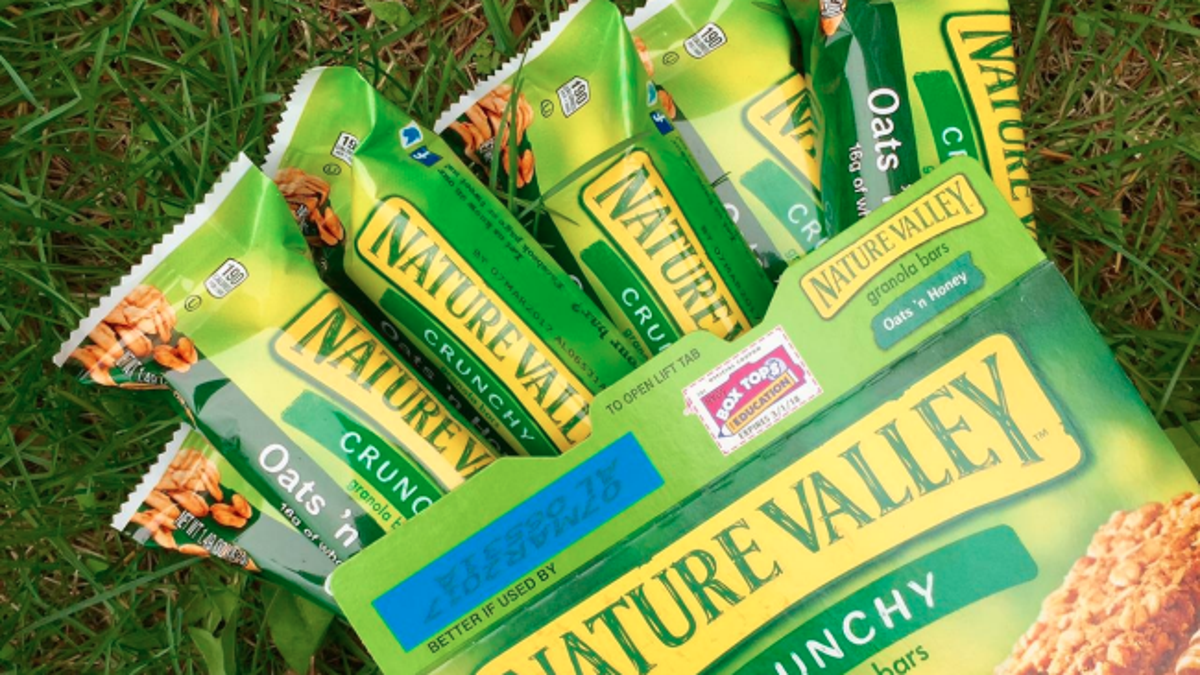
General Mills' granola bar company is under fire from consumers.
Whole grain oats, peanuts and…pesticide?
On Wednesday, three lawsuits were filed against General Mills' granola bar purveyor Nature Valley. The company’s snack bars are currently labeled as being made with “100% natural whole grain oats." But one lawsuit alleges that they actually contain small quantities of the pesticide glyphosate.
According to the litigation, filed in District Courts in New York, California, and Minnesota, along with a civil case brought in a D.C. Superior Court, the “natural” claim is deceptive. At 0.45 parts per million (PPM), the level of the pesticide alleged to be part of the “sweet and salty” bar is significantly below the Environmental Protection Agency’s recommended 30 PPM maximum. The suit says that’s still higher than should be allowed because the glyphosate probably comes from the "100% natural" oats.
The lawsuits come on the heels of an announcement last year by the World Health Organization that the pesticide is “probably carcinogenic.” But in another report by the organization and the United Nations in May said it “is unlikely to be genotoxic at anticipated dietary exposures.”
The potential health effects aren’t the primary motivation, according to the lawyers who filed the suit. Their argument is more elementary; stating that oats can’t be “100% natural” if they’re grown with a synthetic pesticide and thus calling the bars natural is misleading to consumers.
General Mills has yet to respond to the litigation but this isn’t the first time they’ve run into a labeling issue with their granola bar product.
In 2014, they settled a class-action lawsuit and agreed not to label the Nature Valley Granola bars “100% natural” if they had high-fructose corn syrup, maltodextrin or a variety of other highly processed ingredients.
Now, instead of being labeled as “100% natural,” the Sweet and Salty Granola Bars are "made with 100% natural whole grain oats.”
The battle over "healthy" food extends beyond the courtroom all the way to Capitol Hill pending a new review by the Food and Drug Administration. In May, the regulator announced that they planned to ask the public and health experts for an updated definition of what is considered to be “healthy.” In a statement released to the Wall Street Journal at the time, the FDA said that now is an “opportune time to reevaluate regulations concerning nutrient content claims, generally, including the term ‘healthy.’”
The announcement of the review came amid another controversy over “healthy” bars. Specifically, Kind LLC, the maker of fruit-and-nut bars, started pushing for a change after being hit with a warning letter from the FDA for using the word “healthy” on its packages. First, the agency ordered it to remove the distinction from four of its products because the saturated-fat content exceeded regulatory standards for the word. The FDA later rescinded the demand but Kind did make changes to its labels based on the initial warning letter.
In general, the FDA says food should only be marketed as healthy if it meets certain criteria: fat, saturated fat, sodium, cholesterol and valuable nutrients like Vitamin C or calcium. The levels vary by category but there is no legal definition of the term "healthy."
With more lawsuits coming down the pipeline and the impending review by the FDA, however, food producers may be forced to raise the bar on their naturally-labelled foods.
